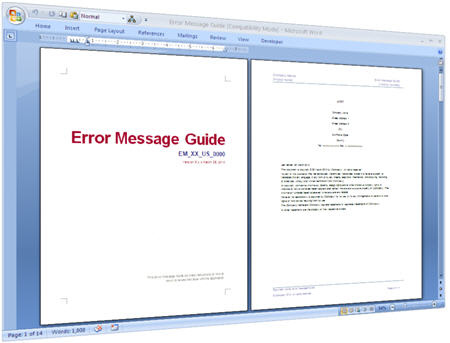


When writing about people with disabilities in the labor force, we spend a lot of time talking about how technology aids them in performing daily tasks, navigating the workplace, and communicating with customers and colleagues. But Drake Bennett’s article in Tuesday’s Bloomberg Businessweek examines a job opportunity where people with disabilities can aid in the development of technology that benefits all consumers.
For his article, “Outsourcing to the Autistic Rather Than to India,” Bennett, a regular staffer on the technology beat for Businessweek, focuses on a few companies employing people with disabilities to perform software testing duties. He looks in particular at a Los Angeles-based firm called Square One Solutions, which is training people with disabilities to do the same detail-oriented tasks that are typically outsourced to workers in India. Bennett says Square One co-founder Chad Hahn sought the help of experts in working with people with disabilities to develop a curriculum that could help these these people attune themselves to the particular challenges of the profession:
The course [Hahn] designed relies not on written instructions but on a software tool called iRise to create simulations of the sort of problems the trainees would confront in an actual work setting.
Bennett points out that similar ventures, both in the United States and Europe, have been done with the support of government subsidies or in a nonprofit structure. But in a supplementary comment to the article, Hahn says Square One’s goal is to spin the training program into its own for-profit entity competing for software testing contracts and hopefully bringing work that traditionally has been outsourced back to American workers.
Hahn acknowledges that in order to accomplish this goal they need to win the cost battle, which would mean paying the software testers a lower wage than their offshore competitors. By keeping it a for-profit venture, however, he can give the employees a shareholder stake in the business, leading to greater compensation as the business flourishes. It also allows Square One to invest in the workplace. Bennett writes:
Hahn is also trying to develop a work environment that would be friendly to those on the autism spectrum, for whom the social interactions of a typical workplace can trigger paralyzing anxiety. For some people, Hahn says, that might mean ensuring that there’s a quiet room or a set of headphones they can put on to block out the buzz around them; for others it’s making sure there’s a counselor there to talk to whenever they need it.
While accepting below-market salaries in exchange for an equity stake is somewhat a standard practice in the world of startup business ventures, some commenters express concern over wage-equity for people with disabilities; while others worry that rising above a certain income level will negatively impact the government benefits a person with a disability receives. Share your thoughts in the comments section.
Image by IvanWalsh.com, used under its Creative Commons license.
nice information keep up good work